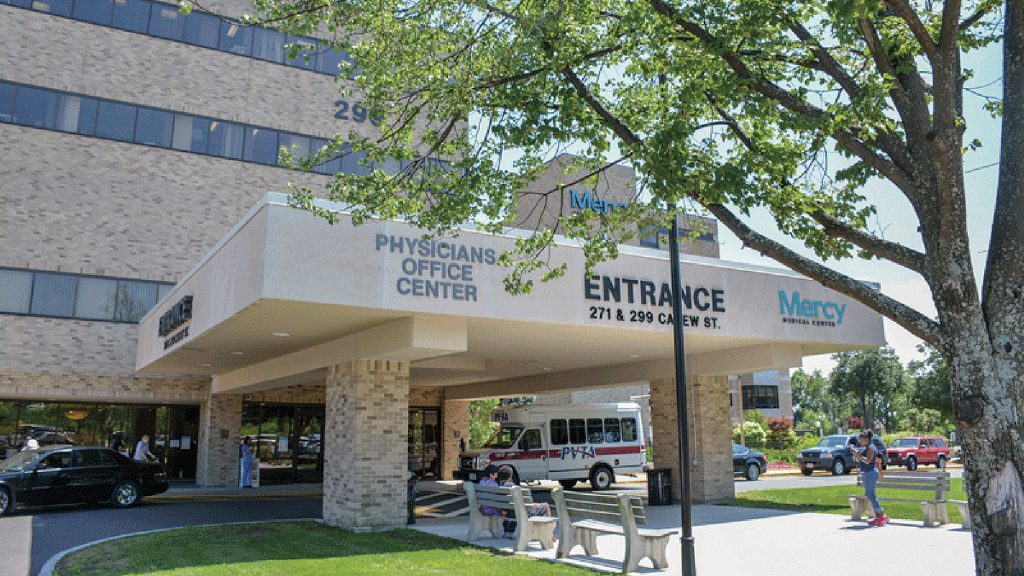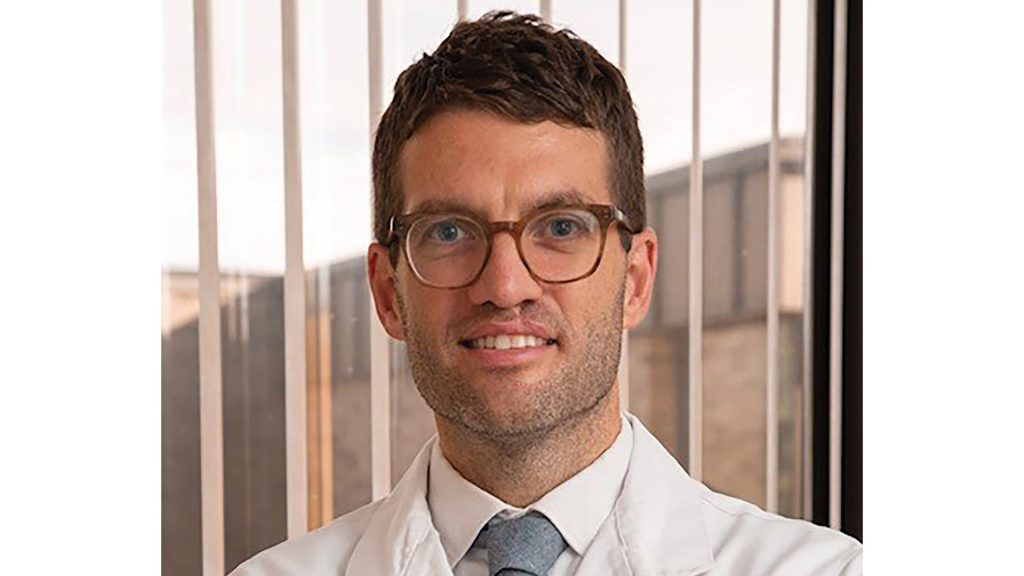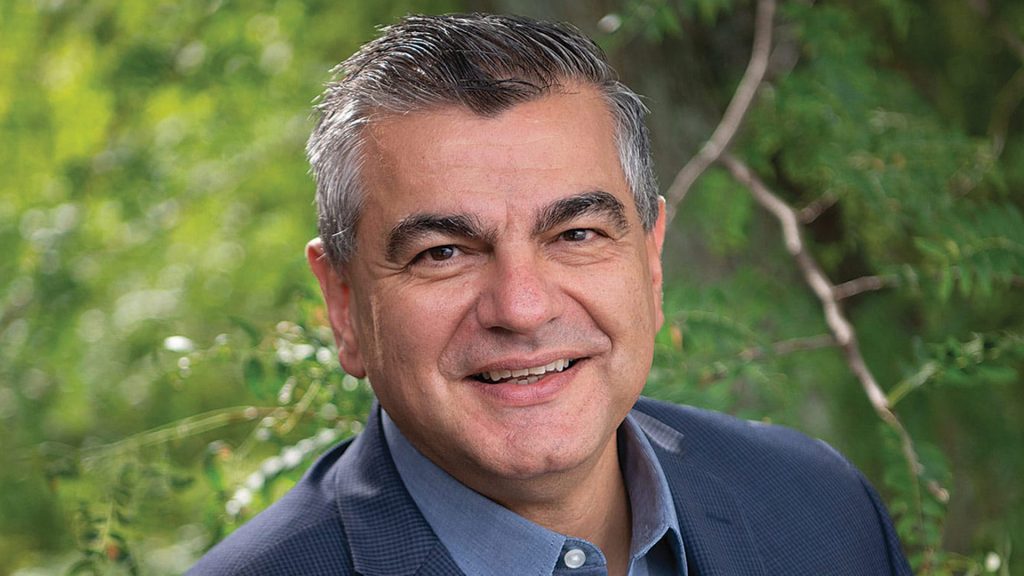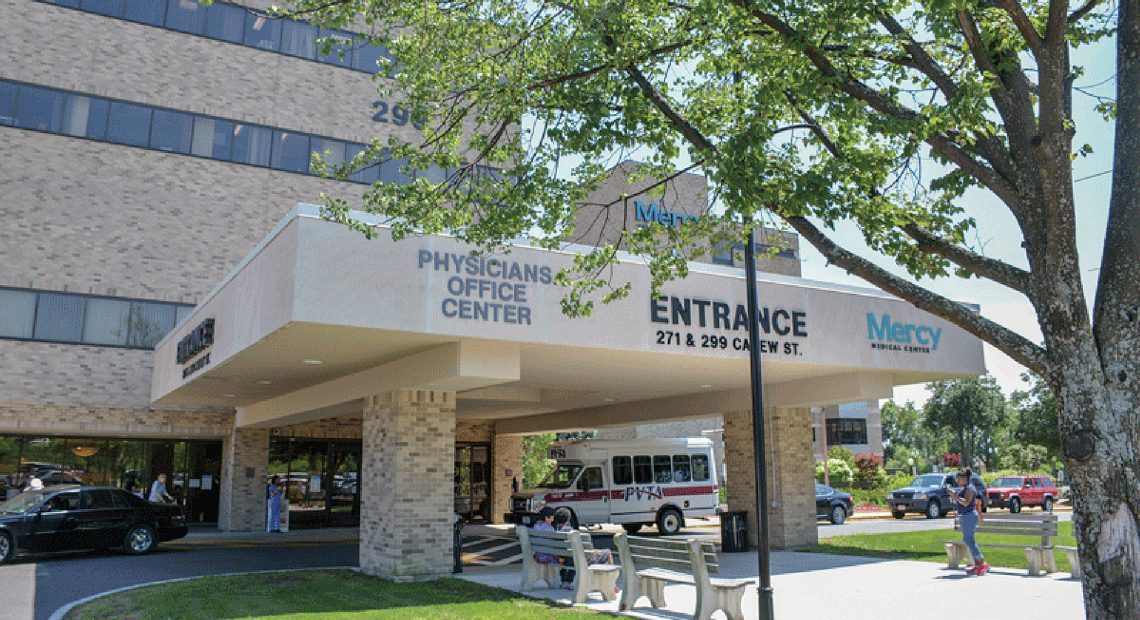When It Can’t Wait

Mercy Medical Center, like all area hospitals, has seen a series of COVID surges over the past two years, including the current one.
Last month’s DPH guidance to hospitals, telling them to postpone all non-essential procedures that could result in an inpatient stay, is a challenge on multiple levels, local hospital leaders say. One, it’s not so easy to simply redeploy personnel from one department to another. Two, there’s no one-size-fits-all definition of ‘non-essential.’ But most important, it’s critical that patients seek out the care they need and let doctors make the judgment calls — and the fear is that this new guidance will chase those patients away. It wouldn’t be the first time.
It’s never good to put off necessary treatment, Spiros Hatiras said, whether that be cardiac screenings, lab tests, or cancer surgery.
“The outcome is not going to be good,” said the president and CEO of Valley Health Systems, which includes Holyoke Medical Center. Yet, that’s exactly what has happened over the past two years, due to a combination of people’s fear of public places and guidance from the hospitals themselves for people to stay home during the early height of the COVID-19 pandemic in 2020.
“People were initially scared; they wanted to stay away from the hospital,” Hatiras said. “Then we started reducing capacity and told people, essentially, ‘don’t come to the hospital.’ We started seeing people come back over the summer and fall, and now we’re back to telling people to stay away.”
He was referring to the Massachusetts Department of Public Health’s (DPH) guidance to hospitals concerning non-essential, elective, invasive procedures, which took effect Dec. 22.
“We started seeing people come back over the summer and fall, and now we’re back to telling people to stay away.”
“To preserve healthcare personnel resources, all hospitals are directed to postpone or cancel all non-essential elective procedures likely to result in inpatient admission in order to maintain and increase inpatient capacity,” the guidance reads. “Patients are reminded to still seek necessary care at their hospital or from their healthcare provider.”
The guidance comes as the Omicron variant has pushed hospitals to capacity limits with a new COVID surge.

Dr. Robert Roose says treating all patients, urgent and non-urgent cases alike, is part of Mercy’s mission, but it will abide by the state’s guidance.
“Hospital capacity is stretched more than it has ever been since the beginning of the healthcare emergency,” Massachusetts Health & Hospital Assoc. (MHA) President and CEO Steve Walsh said in recent testimony to the state Legislature. “After two years of fighting this virus, our caregivers are simply exhausted.”
He acknowledged that “some of these pressures, we feel, are not COVID-related and may have also been mounting for several months.” Still, a strained healthcare workforce is facing a staffing shortage that has contributed to the loss of approximately 500 medical/surgical and ICU hospital beds since the beginning of the year.
Still, Hatiras questions the wisdom of simply assuming caregivers can be efficiently redeployed to other tasks.
“The idea is that, if we don’t do these surgeries, it opens up resources to redeploy in the hospital. But we know that’s not so easily done. You can free up nurse, but in a lot of cases, there’s not a whole lot they can do. It’s not like they can suddenly be an ER nurse or an ICU nurse. There are a lot of issues around that in terms of training and competencies. So the value of actually redeploying staff is somewhat questionable.”
He suggested what might work better is to issue the guidance as an advisory. “We can advise hospitals to find ways to create capacity. At the end of the day, there’s not a single hospital that would leave a patient untreated because they’re going to schedule a plastic surgery ahead of that patient. What we really need is more staff, which we don’t have.”
Dr. Robert Roose, medical director of Mercy Medical Center, said his team takes pride in caring for all the needs of the community, so the DPH guidance poses a challenge.
“Hospital capacity is stretched more than it has ever been since the beginning of the healthcare emergency.”
“It is important for us, from a mission perspective as well as from an operations perspective, to be able to be there when patients need us, whether for emergency care or non-emergency care,” he said. “All types of care across the continuum support individuals’ well-being and wellness.”
That said, “Governor Baker and the Department of Public Health have issued an executive order for hospitals to suspend non-emergency procedures that could result in an inpatient stay. In order for us to fulfill our obligations as a hospital, we are, of course, complying with those orders. We recognize this can be a concern for patients, as well as our providers and colleagues who wish to continue to provide the care they are so expertly trained to do. This is not an ideal situation, but one we find ourselves in, and we look forward to resuming all care in the very near future.”
What Is Non-essential?
To help redirect resources, Gov. Charlie Baker activated the Massachusetts National Guard on Dec. 22 to address the non-clinical support needs of hospitals and transport systems. Up to 300 of these Guard members will support 55 acute-care hospitals, as well as 12 ambulance service providers across the Commonwealth.
DPH surveyed hospitals and ambulance service providers and, in concert with the MHA, identified five key roles that non-clinical Guard personnel can serve in support hospital operations for up to 90 days: driving ambulances used to transfer patients between two healthcare locations, such as when patients are discharged from a hospital and transferred to a long-term-care facility; providing continuous or frequent observation of a patient who is at risk for harm to themselves; helping to maintain a safe workplace; bringing patients via wheelchair or, if needed, stretcher, from their patient room to tests such as X-ray or CT scan, or from the emergency department to their inpatient floor; and delivering patient meals to their rooms.

Spiros Hatiras says very few procedures can be deemed non-essential when one considers the health effects of delaying them.
But if resources are, indeed, being directed away from non-essential procedures, the question becomes what, exactly, constitutes a non-essential procedure. And the answer, in many cases, is complicated.
“The decision of what can be safely postponed, even for a week or three or four, is left to the discretion of the surgeon or clinical team,” Roose said. “That is an incredibly important fact because, ultimately, the providers are the ones responsible for the care of the patient, and we never want to see something untoward occur during the period of time when they could have been attended to. At Mercy, just like at other hospitals, those decisions are made by the treating providers and patients in collaboration, with their best interest in mind.”
Hatiras agreed. “When we talk about necessary procedures, first of all, there’s no particular approach; every individual is different. If you think about it, there are very few procedures where postponing it enhances one’s health. We’re talking about surgery here. When somebody gets to the point where they need surgery, it’s not like getting a haircut, where it can wait until next month.”
Exceptions to this rule might include discretionary plastic surgery and perhaps Lasik, where the worst-case scenario might be a few more months of wearing glasses or contacts.
“But that’s about the only things I can think of,” Hatiras said. “With other things, you’re doing it because you’re in pain or your health is deteriorating in some way.”
Take bariatric surgery, which some people might put in the non-essential category. Those patients start the process six months before surgery and tackle issues such as diabetes and blood pressure — “all the issues that make COVID deadlier,” Hatiras said. They typically have to lose a certain amount of weight before surgery and undergo psychological screening and counseling.
“When they meet all the milestones and the date approaches where they’re ready for surgery, should we now tell them, ‘guess what? We can’t do your surgery; we’ll let you know when we can.’ That would be wholly detrimental to the patient, who worked for six months to get to a point they might never get back to.
“Could you call that elective?” Hatiras added. “When you do the surgery, the diabetes gets better, the blood pressure gets better, the heart gets better. I take issue with what some people consider elective.”
Or take knee and hip replacements, he went on. “Is that really elective when there’s a risk of blood clots because they can’t walk or they’re risking other illnesses because they’re taking pain medications to cope with it?”
Call Your Doctor
Hatiras and Roose both hope the new state guidance doesn’t chase people away from seeking the care they actually need. That’s what happened last year, and hospitals and patients are still feeling the effects.
“At this point in the pandemic, our concern is that we have started to see the impacts of people in the community delaying care during prior waves of the pandemic,” Roose said. “We want to encourage members of the community to seek out important primary care, preventive care, and non-urgent care that can contribute to their health and wellness.”
In other words, let doctors and facilities decide what’s necessary — and how that care can be delivered.
“We have seen the pandemic shift many things in healthcare, including the way people seek care, which now is occurring far more through digital or virtual means than prior to the pandemic,” Roose said. “We’re seeing high demand for additional services in the home after a hospital stay, or in skilled nursing and other facilities. We are paying attention to how we can provide a service that delivers both in terms of convenience and excellence, because the pandemic has changed fundamentally the way care will be delivered for many years to come.”
The MHA, the DPH, and hospitals are united on one front: the unvaccinated far, far outnumber the vaccinated when it comes to taking up inpatient beds — and especially ICU beds — with COVID, in turn making it harder for hospitals to provide other services.
“When somebody gets to the point where they need surgery, it’s not like getting a haircut, where it can wait until next month.”
According to the DPH, 97% of COVID breakthrough cases in Massachusetts have not resulted in hospitalization or death, and unvaccinated individuals are five times more likely to contract COVID than fully vaccinated individuals and 31 times more likely to contract COVID than individuals who have a booster.
The MHA’s executive committee recently released an “urgent plea” for Massachusetts residents to do five things if they haven’t already: get vaccinated for both COVID-19 and the flu, and get boosted when eligible; always wear a mask when in public and when social distancing isn’t possible; get tested for COVID-19 if you develop symptoms or if you come into close contact with someone who has tested positive; keep up with regular medical appointments, “as we are now seeing the devastating effects of delayed care from the first waves of the pandemic”; and seek care from a doctor or urgent-care center when appropriate.
“When in doubt, you should never hesitate to visit your local emergency room,” the committee noted. “But for many medical situations, these settings can provide you with more timely and efficient care.”
It’s notable that, along with the expected advice to vaccinate and mask up, these medical professionals would warn against delaying care, even amid the DPH’s guidance to hospitals to postpone some procedures.
“Cumulatively, I think we’re dropping the health status of individuals,” Hatiras said, noting that people have put off colonoscopies, mammograms, and other procedures that are key to detecting issues early, before they develop into health crises. Holyoke Medical Center has responded with a public campaign to bring patients back, so they don’t keep delaying important visits.
“Don’t put something off. Don’t make that decision yourself,” he added. “To me, there is no safer place than a hospital. To me, a hospital is a lot safer than a restaurant, a lot safer than the mall, whatever you want to compare it to, because we have personnel aware of infection-control issues. We wear masks indoors, we hand sanitize, we know how to avoid infection.”
And don’t put off behavioral-health needs, either, Hatiras added, noting that isolation and anxiety have soared during the pandemic. “We see a lot of people deteriorating, in both their physical health and mental health, and that combination is never good.”
Roose agreed that it’s critical for individuals to seek the care they need, no matter what the state is saying, and let their doctor guide their next steps.
“There’s a lot of attention on capacity in hospitals, but we would not want anyone to delay care for important business, like mammograms, colonoscopies, lab tests, or emergency or urgent care,” he told BusinessWest. “We are here to take care of you, and we want to continue to send that message.”
Joseph Bednar can be reached at [email protected]





